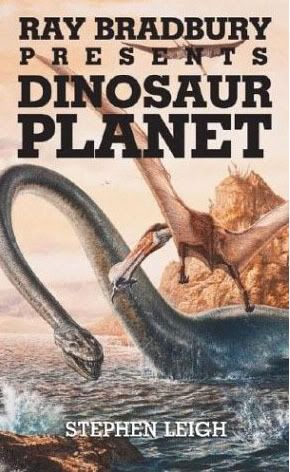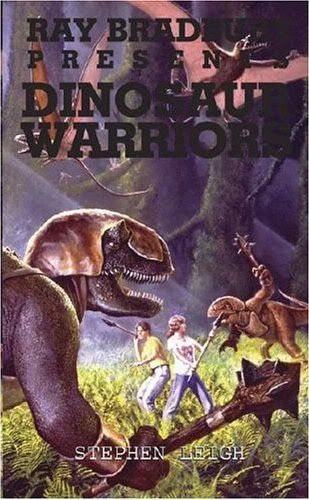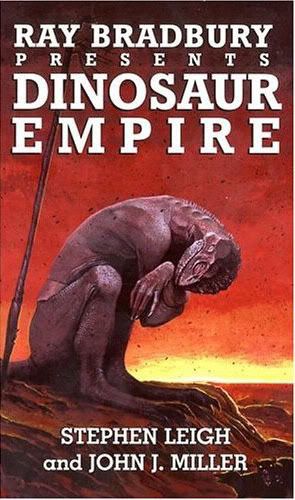Pretty night. Anyway.
As part of a random musing, I want to touch on Science Fiction as a genre for a moment.
I've seen a lot of movies, read a lot of books, and am a huge fan, honestly. However, I think the following things are interesting concerning the genre as of late. Specifically the last 50 years or so.
Granted the genre is fairly new (compared to previous forms of literature) and there is still unexplored ground, but there are several repetitive themes that continue though the genre as a broken record, and can be seen clearly in a lot of television sci fi shows.
Sci fi didnt start out as being equated with the horror genre, and it really shouldn't be. I don't understand how people, or stores, think that they are close together or are one in the same. Just because a monster is an alien, people automatically put the movie in the sci fi genre, when in my opinion, it shouldn't be.
The best sci fi, or in my opinion the true to form science fiction movies have question's man's place in the universe or humanity's ability to overcome obstacles, which can be seen in epics dating back to Mesopotamian times. In fact, mythological epics and fantastic stories usually told of a human or group of humans overcoming supernatural or un-human forces. It's been a part of human civilization and culture as a whole for thousands of years. Who doesn't remember the fictional stories of Hansel and Gretel, Rumplestiltskin, etc?
In the same vein, humans always love to hear stories of triumph, real or otherwise. Stories convey truthes to us that can not be taken away. They communicate values and lead us in the direction of the Light, and instill in us the feelings of being able to overcome obstacles.
Even more riveting are the true stories of survival and overcoming, which seem to light up our imaginations even more and bring us back to the time of being pirates and princesses in the enormous wonderlands of our backyards.
Even more riveting are the true stories of survival and overcoming, which seem to light up our imaginations even more and bring us back to the time of being pirates and princesses in the enormous wonderlands of our backyards.
The point I am making is that the best stories we have read were the ones that touched us and gave us meanings and feelings, and the 'aha' moments that no one could take away. This, in my opinion, rings true for science fiction as well.
That said, there dont seem to be many true-to-form stories of discovery and the ultimate view of humanity.
Jules Verne wrote the first science fiction stories concerning man's trip to the moon, and the unity of humanity to overcome an obstacle and the use of prose to put the focus on the current state of humanity.
SPOILERS OF CERTAIN SCI FI BOOKS BELOW!
The book "First men on the moon" chronicles the first humans to the moon who find insectioid life in a complex society, and for all the alien-ness, they are repulsed by the rumors or wars and travesty and greed on the Earth. They do not allow humanity to know of their existance because they do not want any war to come to them. Keep in mind this was written in the early 1900s.
Verne also penned books such as "20,000 leagues under the Sea", "Journey to the Centre of the Earth", among others. these all had elements of action, drama, and a broader view of the human experience as a whole.
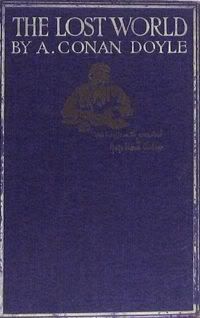
Unfortunately, that does not seem to be the case with current sci fi writers.
But before I go there, let me continue.
Books such as Sir Arthur Conan Doyle's "Lost World", Ray Bradbury's "The Martian Chronicles", Isaac Asimov's "Foundation" series all continue that vein, albeit with a bit more maturity of the thematic elements. Granted, that is debatable considering Verne was writing his works when no one else was. How can you impove on a classic? You can't. If it isnt broken, don't fix it.
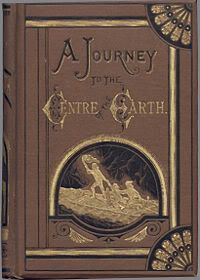
Anyway, The genre continued until people like Ben Bova and others who slighted the genre with more existential works that took away the wonder of discovery that existed with previous works. (mind you, atheism has only existed as a movement within the last 200 years. this is important) Bova wrote prolific novels, and I give him credit for that. However the novels were propogandist works which leveled attacks against organised religion. This said, it's difficult to see how many people consider his works great science fiction as they are propogandistin nature and only deals with the antagonists trying to colonize the solar system but are constantly fighting the antagonists who are an organized (and in his view) political group of radicals. While I can understand that this might parallel current events, at the time there were no well known radical religious groups, and it was more of a counterculture-flavored literary exercise.
The whole theme of propoganda and personal vendetta against a person or organization basically takes away from the original vein of Sci Fi into projecting personal agendas onto paper. Personally, I really, really, REALLY dislike propoganda literature or literature that is biased. Granted there is bias in some form in most prose, but I would prefer to not read a book that attempts to shove the author's political beliefs down my throat.
It's an intense statement, but with everyone so pluralistic these days, I get tired of the constant political banter and attacks in everything from rap songs to chewing gum. Some days, Dinotopia sounds like a great place to visit.
During this point in time, a pl
 ethora of sci fi movies were made. Several stand out as being true-to-form, such as "The Day the Earth Stood Still", and others.
ethora of sci fi movies were made. Several stand out as being true-to-form, such as "The Day the Earth Stood Still", and others. One movie whose name I can't remember but the plotline is basically: Aliens crash and humans think they are evil, and people become brainwashed by the aliens, however everyone finally realized the aliens (no matter how gross looking) are just trying to get home and at the end a human narrates and says that maybe humanity isnt ready for contact. I'll try to figure out the title for it.
Point being, at the same time some of these very true-to-form movies were coming out, there were a TON of bad sci fi movies coming out.
Prince of Space, anyone?

Now, granted, I understand that studios wanted to make money and there was money in sci fi movies, but unfortunately there was a lot of mediocre stuff that came out, and some movies tried to blur the like between horror and sci fi. This is kind of when it started. A la "Creature from the Black Lagoon." (funny movie, by the way)
Point being, at the same time some of these very true-to-form movies were coming out, there were a TON of bad sci fi movies coming out.
Prince of Space, anyone?

Now, granted, I understand that studios wanted to make money and there was money in sci fi movies, but unfortunately there was a lot of mediocre stuff that came out, and some movies tried to blur the like between horror and sci fi. This is kind of when it started. A la "Creature from the Black Lagoon." (funny movie, by the way)
So it continued until the present day. Now, two of the most popular sci fi TV series/Movie series/etc are these:
Star Trek, Star Wars, Stargate, etc. (Yes there are popular sci fi series right now that have 'cult' followings, but they have yet to stand the test of time, so I am only going to talk about those series that are 10+ years old)
As for Star Trek, the concept was strong early on. Humanity solving their differences and combating outside forces. In some ways it was Utopian drama, however it skirted the line because of latter installments of the original series movies. Either way, it has staying power and the most popular of the series stayed close to the vein in which sci fi started from. While this series was based on a Utopian theme, latter elements focused on the idea that the Federation WAS a utopian society, however the rest of the universe was not. It was a good expansion of the idea, in my opinion.
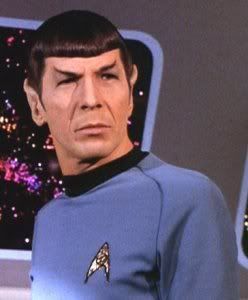
As for Star Wars, while I am not against it, there isnt much to say about the story. It's borderline distopian prose, however it comes across as a more mythological epic (and it presented as such) with a heavier focus on mythological elements, admittedly so from George Lucas. The first three were strong in prose. (I am very, very impressed by the graphics of the whole six movies, however. VERY.)

As for Stargate, it was more along the lines of the same vein, though not entirely.
The concept is interesting: humans find a gate to places across the galaxy and universe. It stands to reason that a series would follow. Now there have been 10 seasons of the original series and it's on the fourth season on the second series, with three dvd movies in the making). The prose has been very strong with a focus on character development and a 'switch up' of normal sci fi plots. It was also one of the first series to focus on continuous story arcs.
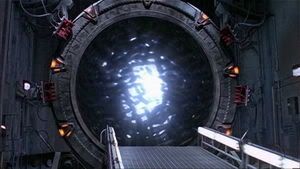
Point being, even though sci fi has migrated to TV and movies, some of the elements have remained true to form, though not entirely.
As for prose, there doesnt really seem to be any major literary writer at the moment who has focused on the genre within the same vein as Asimov and the rest. It almost seems as though authors just keep rep-hashing old ideas over and over again. There doesnt seem to be much that is new, and what is 'new' is basically existentialist boring prose that has been done before several times.
Granted, I will give you the fact that Michael Chrichton has put out some pretty good stuff. I will make that exception, but there doesnt seem to be more than that. At least not that I can think of presently. If there are then it's probably just a handful at most who are putting out strong literary works.
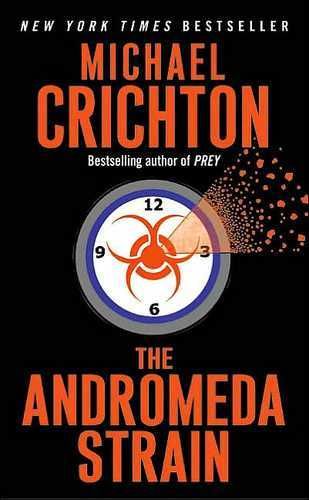
Also, much of the Sci Fi TV series and prose has become 'Politically Correct' in its themes, which makes for even more boring literature. If you go to a university library and wander to the "Slavery" section, you will find narratives that are probably too politically incorrect to be 'acceptable' to the public. That, I think, is what made Star Trek less popular as it went on, because it didn't really focus on the more 'incorrect' issues, and some series were just entirely PC and did not have much of a Utopian/Distopian theme at all. There is a difference. You can be politically incorrect to show that an issue is wrong or right, despite what current 'majority opinion' is.
I wonder who decides that, by the way. The best literature has been that which has shed light on the failings and succession of humanity. "The Hiding Place" by Corrie Ten Boom is a non-fiction, first-hand account of this woman's excperience inside of a concentration camp. I couldnt put the book down. While it is non-fiction, the point is that any account, real or fictional, can be so gripping or impressive that you can't put the book down until you find out what happens.

Anyway, the best sci fi literature has not been politically correct, and I dont think it should be. I think it should be historically accurate and should acknowledge the fallibility of humans withhout gazing into the failures for 300 pages. Eesh. I've read some of those before. The balance is to see the failures without dwelling on them. Nothing in history is politically correct. Slavery wasn't politically correct. Racism wasn't, abuse of women's rights weren't, the white mans burden, trail of tears, nor the cultural views of any society ancient or modern.
The point being, every culture has a view of what is acceptable, and to dumb it down and make the characters get along and throw in a Deus ex Machina just makes in boring. (The term is latin for "God in the machine" where a machine solves everyone's problems. God knows we haven't had that happen in real life. Take a look at the Industrial Revolution. It took these countries 200 years to adjust to the technological breakthroughs)
Coming to this, there is an excellent series by C.S. Lewis which, in my opinion, is the bravest and best of all sci fi literature. This is so because it boldly steps into sci fi and asks the tough questions like "What would aliens believe spiritually? Where does God fit in if we met aliens?" and other pressing questions. Its a hard look at humanity through the eyes of aliens who have little concept of greed, anger, rage, etc. I strongly recommend it. The first and second books are the best of the series.
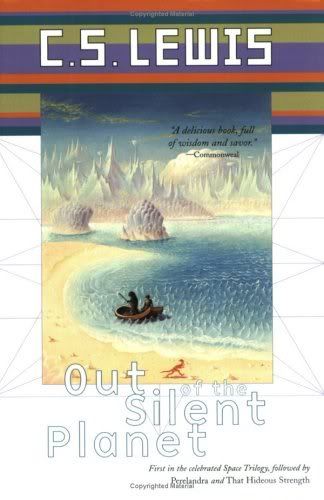

So anyway, just a musing of sci fi and the titles therein. Till later! Let me know what you think.
ADDENDUM:
Please understand that I am not saying that Sci fi shouldnt expand it's spectrum in literary works. I am saying that there is a lot od mediocre stuff out there that is simply re-hashing ideas brought about by the great science fiction authors. It's no problem to keep looking at a subject from a different angle or mixing stuff up, but again there is a lot of re-hashing and 're-inventing the wheel' by shows, books, and comics that try to 'improve upon the original'. To date I have not seen a viable 'improved original' other than Star Wars Episodes IV-VI, which only added better effects and didnt take away from anything that made the movies so popular.
Anyway, Sci Fi should continue to expand its horizons and ask the deep questions without getting stuck in the eddies of human regurgitation of symantics and already established ideas, or re-inventing a classic idea to appeal to a more 'modern' audience. I can list several 'revamped' movies that tried to improve on the original and failed at the box office. Again, if it isn't broken, don't fix it. Novels that are set in the future and alternate timelines are great, and that doesnt take away from the original vein that sci fi was going in, but again there are a lot of mediocre attempts at putting out literature versus people who have put out some exemplary works. (See Ray Bradbury's "Dinosaur Planet" series)
